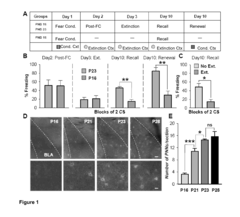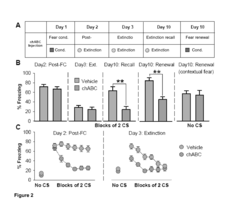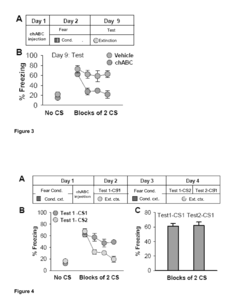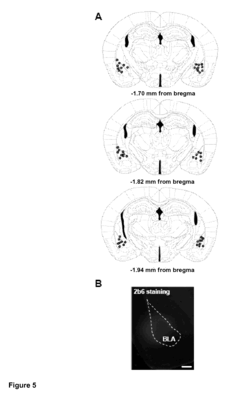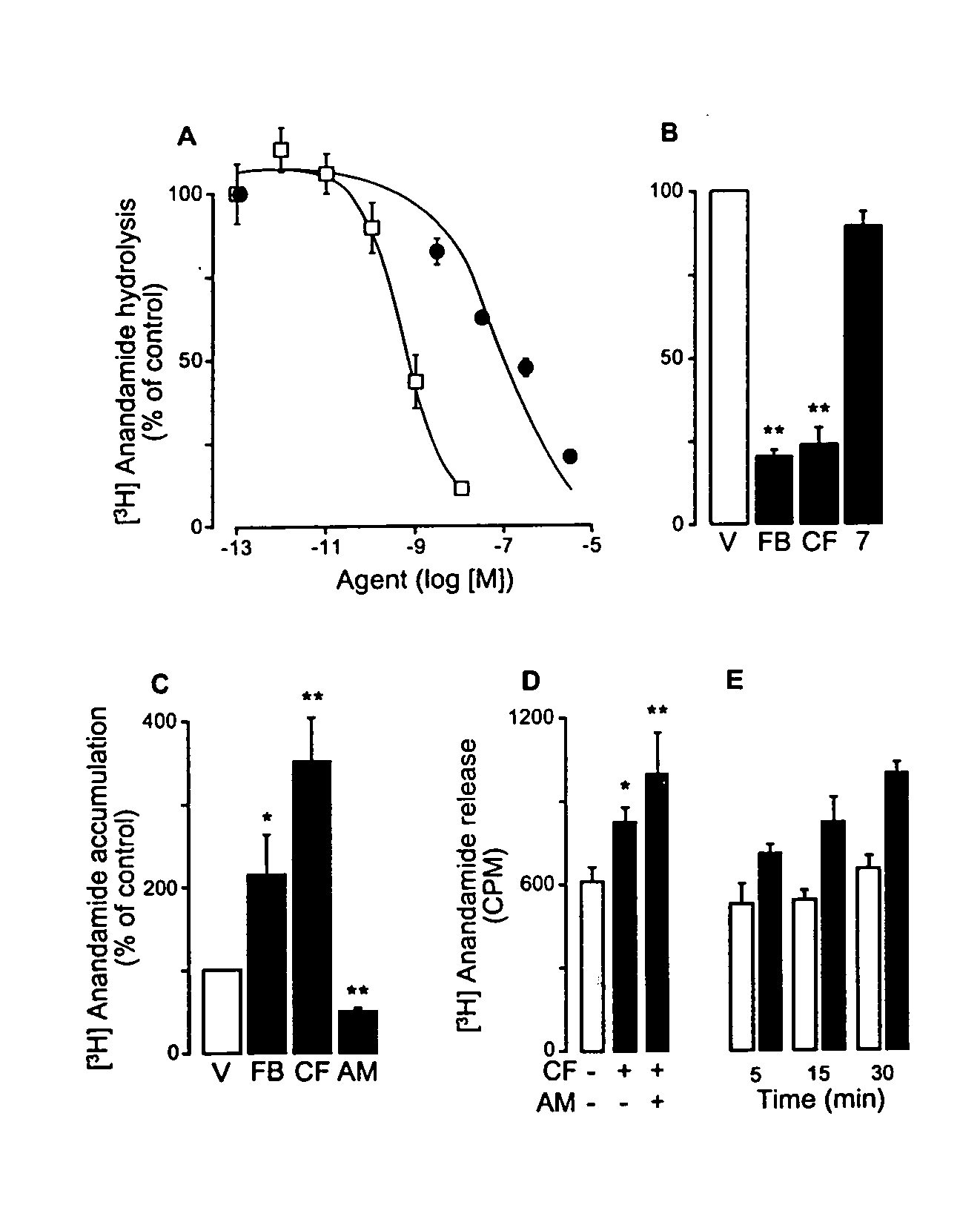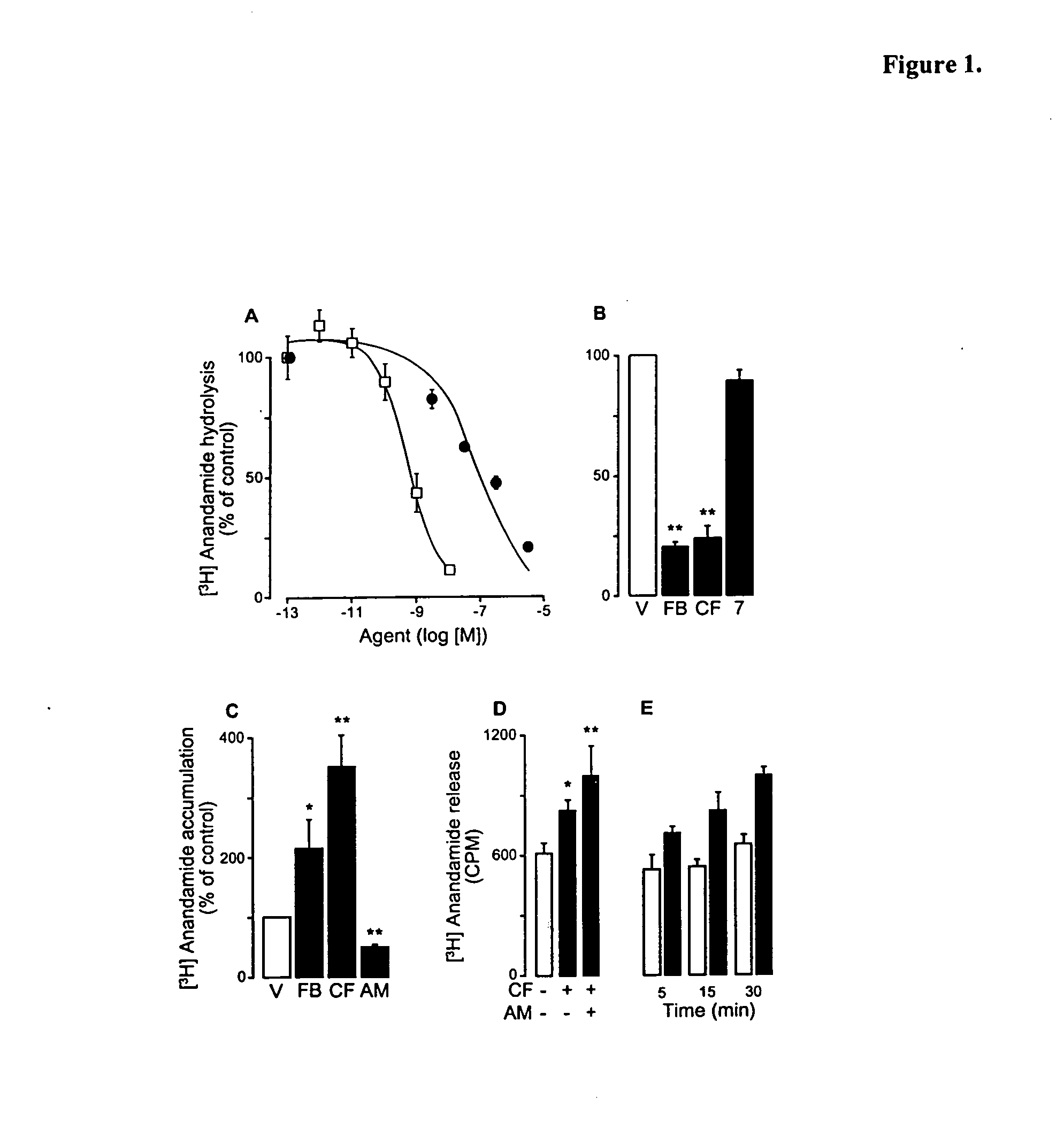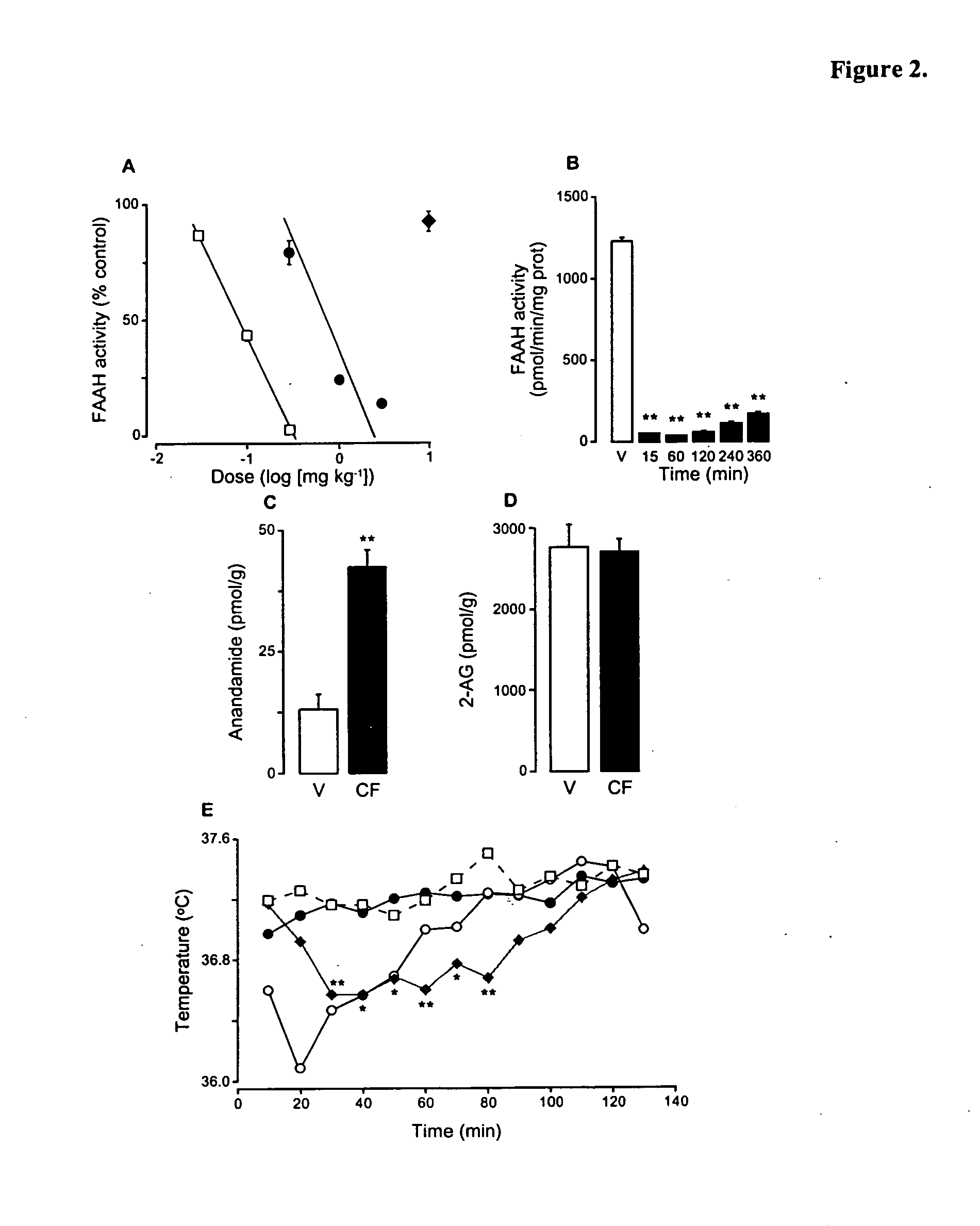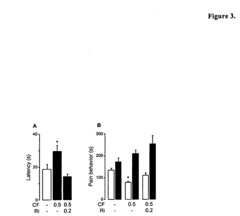Comparing Quantum Healing and Hypnotherapy for Anxiety
SEP 4, 202510 MIN READ
Generate Your Research Report Instantly with AI Agent
Patsnap Eureka helps you evaluate technical feasibility & market potential.
Quantum Healing and Hypnotherapy Background and Objectives
Quantum healing and hypnotherapy represent two distinct therapeutic approaches that have gained attention for anxiety treatment in recent decades. Quantum healing, rooted in quantum physics principles, emerged in the 1980s through Deepak Chopra's work, suggesting consciousness directly influences physical reality at the quantum level. This approach proposes that healing occurs through shifts in quantum fields and consciousness, potentially addressing anxiety by realigning energy patterns within the body-mind system.
Hypnotherapy, with a longer documented history dating back to the 18th century, evolved from Franz Mesmer's work on "animal magnetism" to James Braid's development of hypnosis as a therapeutic technique. Modern clinical hypnotherapy utilizes altered states of consciousness to access the subconscious mind, restructure thought patterns, and modify behavioral responses to anxiety triggers.
The technological evolution of these fields has followed distinct trajectories. Quantum healing has incorporated biofeedback devices, electromagnetic field therapy, and consciousness-based interventions. Meanwhile, hypnotherapy has evolved through neuroimaging validation, standardized induction protocols, and integration with cognitive-behavioral techniques, establishing more empirical foundations.
Current research objectives focus on establishing comparative efficacy metrics between these approaches for anxiety treatment. Key questions include determining which method provides more sustainable anxiety reduction, identifying ideal candidate profiles for each therapy, and exploring potential synergistic effects when combined. Additionally, researchers aim to understand the neurobiological mechanisms underlying both approaches through advanced brain imaging techniques.
The technological goals include developing standardized protocols that optimize outcomes, creating objective measurement tools to quantify therapeutic effects, and establishing evidence-based guidelines for practitioners. There is particular interest in identifying biomarkers that might predict treatment response to either approach, potentially enabling personalized treatment recommendations.
From a clinical perspective, objectives include improving accessibility to these therapies, reducing treatment duration while maintaining efficacy, and integrating these approaches with conventional anxiety treatments. The field is moving toward establishing clearer boundaries between evidence-based applications and speculative claims, particularly important for quantum healing where scientific validation remains more limited than hypnotherapy.
The ultimate aim is to determine whether these approaches represent complementary or alternative pathways for anxiety management, and to establish their proper positioning within the broader mental health treatment landscape. This requires rigorous comparative studies examining both immediate symptom relief and long-term anxiety management outcomes.
Hypnotherapy, with a longer documented history dating back to the 18th century, evolved from Franz Mesmer's work on "animal magnetism" to James Braid's development of hypnosis as a therapeutic technique. Modern clinical hypnotherapy utilizes altered states of consciousness to access the subconscious mind, restructure thought patterns, and modify behavioral responses to anxiety triggers.
The technological evolution of these fields has followed distinct trajectories. Quantum healing has incorporated biofeedback devices, electromagnetic field therapy, and consciousness-based interventions. Meanwhile, hypnotherapy has evolved through neuroimaging validation, standardized induction protocols, and integration with cognitive-behavioral techniques, establishing more empirical foundations.
Current research objectives focus on establishing comparative efficacy metrics between these approaches for anxiety treatment. Key questions include determining which method provides more sustainable anxiety reduction, identifying ideal candidate profiles for each therapy, and exploring potential synergistic effects when combined. Additionally, researchers aim to understand the neurobiological mechanisms underlying both approaches through advanced brain imaging techniques.
The technological goals include developing standardized protocols that optimize outcomes, creating objective measurement tools to quantify therapeutic effects, and establishing evidence-based guidelines for practitioners. There is particular interest in identifying biomarkers that might predict treatment response to either approach, potentially enabling personalized treatment recommendations.
From a clinical perspective, objectives include improving accessibility to these therapies, reducing treatment duration while maintaining efficacy, and integrating these approaches with conventional anxiety treatments. The field is moving toward establishing clearer boundaries between evidence-based applications and speculative claims, particularly important for quantum healing where scientific validation remains more limited than hypnotherapy.
The ultimate aim is to determine whether these approaches represent complementary or alternative pathways for anxiety management, and to establish their proper positioning within the broader mental health treatment landscape. This requires rigorous comparative studies examining both immediate symptom relief and long-term anxiety management outcomes.
Market Analysis for Anxiety Treatment Modalities
The global anxiety treatment market has witnessed substantial growth, currently valued at approximately 15 billion USD with projections indicating a compound annual growth rate of 5.6% through 2028. This expansion is primarily driven by increasing prevalence of anxiety disorders, affecting nearly 275 million people worldwide according to recent WHO data. The COVID-19 pandemic has further accelerated market growth, with anxiety disorder diagnoses increasing by 25% during the first year of the pandemic.
Traditional treatment modalities dominate the market, with pharmaceutical interventions capturing roughly 65% of market share. Psychotherapy approaches, including cognitive behavioral therapy, account for approximately 25% of the market. Alternative and complementary treatments, where both quantum healing and hypnotherapy are positioned, currently represent a smaller but rapidly growing segment at 10% of the overall market, expanding at nearly twice the rate of conventional treatments.
Consumer demand patterns reveal increasing interest in non-pharmaceutical approaches to anxiety management. Market research indicates that 47% of anxiety sufferers have explored or expressed interest in alternative therapies, citing concerns about medication side effects and preferences for holistic treatment approaches. This trend is particularly pronounced among millennials and Gen Z demographics, who demonstrate 58% higher likelihood of seeking alternative treatments compared to older generations.
Hypnotherapy for anxiety has established a more substantial market presence, with an estimated global market size of 230 million USD and over 12,000 certified practitioners worldwide. The treatment typically costs between $75-200 per session, with most therapeutic protocols requiring 6-10 sessions. Insurance coverage remains limited but is gradually expanding, with approximately 15% of private insurers now offering some form of coverage for hypnotherapy when prescribed by physicians.
Quantum healing represents a newer, less established market segment with higher variability in practitioner qualifications, treatment protocols, and pricing structures. The market size is estimated at 85 million USD, growing at 12.3% annually. Consumer pricing ranges widely from $100-500 per session, reflecting the lack of standardization in the field.
Regional analysis reveals significant market variations, with North America and Europe demonstrating higher adoption rates for both modalities. Asian markets show accelerating growth, particularly in urban centers where Western therapeutic approaches are gaining acceptance alongside traditional healing practices. Regulatory environments vary substantially by region, with hypnotherapy enjoying more widespread recognition as a legitimate therapeutic intervention compared to quantum healing approaches.
Traditional treatment modalities dominate the market, with pharmaceutical interventions capturing roughly 65% of market share. Psychotherapy approaches, including cognitive behavioral therapy, account for approximately 25% of the market. Alternative and complementary treatments, where both quantum healing and hypnotherapy are positioned, currently represent a smaller but rapidly growing segment at 10% of the overall market, expanding at nearly twice the rate of conventional treatments.
Consumer demand patterns reveal increasing interest in non-pharmaceutical approaches to anxiety management. Market research indicates that 47% of anxiety sufferers have explored or expressed interest in alternative therapies, citing concerns about medication side effects and preferences for holistic treatment approaches. This trend is particularly pronounced among millennials and Gen Z demographics, who demonstrate 58% higher likelihood of seeking alternative treatments compared to older generations.
Hypnotherapy for anxiety has established a more substantial market presence, with an estimated global market size of 230 million USD and over 12,000 certified practitioners worldwide. The treatment typically costs between $75-200 per session, with most therapeutic protocols requiring 6-10 sessions. Insurance coverage remains limited but is gradually expanding, with approximately 15% of private insurers now offering some form of coverage for hypnotherapy when prescribed by physicians.
Quantum healing represents a newer, less established market segment with higher variability in practitioner qualifications, treatment protocols, and pricing structures. The market size is estimated at 85 million USD, growing at 12.3% annually. Consumer pricing ranges widely from $100-500 per session, reflecting the lack of standardization in the field.
Regional analysis reveals significant market variations, with North America and Europe demonstrating higher adoption rates for both modalities. Asian markets show accelerating growth, particularly in urban centers where Western therapeutic approaches are gaining acceptance alongside traditional healing practices. Regulatory environments vary substantially by region, with hypnotherapy enjoying more widespread recognition as a legitimate therapeutic intervention compared to quantum healing approaches.
Current State and Challenges in Alternative Anxiety Therapies
The field of alternative anxiety therapies has witnessed significant growth in recent years, with quantum healing and hypnotherapy emerging as two prominent approaches. Current research indicates that approximately 40% of adults with anxiety disorders seek complementary or alternative treatments, highlighting the substantial market demand for non-pharmaceutical interventions.
Quantum healing, rooted in quantum physics principles applied to consciousness and healing, remains largely theoretical with limited empirical validation. Despite this, practitioners report success rates between 30-60% for anxiety reduction, though these figures lack standardized measurement protocols. The absence of regulatory frameworks and accreditation standards presents a significant challenge to mainstream acceptance and quality control.
Hypnotherapy for anxiety, conversely, has accumulated more substantial clinical evidence. Meta-analyses suggest efficacy rates of 60-75% for generalized anxiety disorder when combined with cognitive behavioral techniques. However, the field faces challenges in standardization of protocols and practitioner qualifications, with training requirements varying dramatically across jurisdictions.
A key technical challenge in both modalities is the development of objective measurement tools. Current assessment relies heavily on self-reported outcomes using scales like the Hamilton Anxiety Rating Scale or State-Trait Anxiety Inventory, introducing potential bias and limiting comparative analysis between approaches. Neuroimaging studies attempting to document physiological changes during these interventions remain preliminary and often underpowered.
Integration with conventional medical systems represents another significant hurdle. Most healthcare systems worldwide lack reimbursement mechanisms for these therapies, creating accessibility barriers. Additionally, the absence of standardized diagnostic criteria specific to alternative therapy applications complicates treatment planning and outcome evaluation.
Research funding disparities further constrain advancement, with less than 0.5% of mental health research budgets allocated to investigating alternative anxiety treatments. This limited investment has resulted in a predominance of small-scale studies with methodological limitations, including inadequate control groups and short follow-up periods.
Technological implementation varies widely across practitioners. While some hypnotherapists have embraced digital platforms for remote sessions (accelerated by the COVID-19 pandemic), quantum healing practitioners often emphasize in-person energy work. This divergence creates challenges in developing standardized delivery systems and complicates comparative effectiveness research.
Ethical considerations present additional complexities, particularly regarding informed consent and managing client expectations. The metaphysical claims associated with quantum healing and the suggestibility factor in hypnotherapy require careful ethical frameworks that currently lack consensus among practitioners and regulatory bodies.
Quantum healing, rooted in quantum physics principles applied to consciousness and healing, remains largely theoretical with limited empirical validation. Despite this, practitioners report success rates between 30-60% for anxiety reduction, though these figures lack standardized measurement protocols. The absence of regulatory frameworks and accreditation standards presents a significant challenge to mainstream acceptance and quality control.
Hypnotherapy for anxiety, conversely, has accumulated more substantial clinical evidence. Meta-analyses suggest efficacy rates of 60-75% for generalized anxiety disorder when combined with cognitive behavioral techniques. However, the field faces challenges in standardization of protocols and practitioner qualifications, with training requirements varying dramatically across jurisdictions.
A key technical challenge in both modalities is the development of objective measurement tools. Current assessment relies heavily on self-reported outcomes using scales like the Hamilton Anxiety Rating Scale or State-Trait Anxiety Inventory, introducing potential bias and limiting comparative analysis between approaches. Neuroimaging studies attempting to document physiological changes during these interventions remain preliminary and often underpowered.
Integration with conventional medical systems represents another significant hurdle. Most healthcare systems worldwide lack reimbursement mechanisms for these therapies, creating accessibility barriers. Additionally, the absence of standardized diagnostic criteria specific to alternative therapy applications complicates treatment planning and outcome evaluation.
Research funding disparities further constrain advancement, with less than 0.5% of mental health research budgets allocated to investigating alternative anxiety treatments. This limited investment has resulted in a predominance of small-scale studies with methodological limitations, including inadequate control groups and short follow-up periods.
Technological implementation varies widely across practitioners. While some hypnotherapists have embraced digital platforms for remote sessions (accelerated by the COVID-19 pandemic), quantum healing practitioners often emphasize in-person energy work. This divergence creates challenges in developing standardized delivery systems and complicates comparative effectiveness research.
Ethical considerations present additional complexities, particularly regarding informed consent and managing client expectations. The metaphysical claims associated with quantum healing and the suggestibility factor in hypnotherapy require careful ethical frameworks that currently lack consensus among practitioners and regulatory bodies.
Comparative Analysis of Quantum Healing vs Hypnotherapy Techniques
01 Quantum healing techniques for anxiety reduction
Quantum healing approaches leverage principles from quantum physics to address anxiety disorders. These techniques often involve energy field manipulation, consciousness-based interventions, and quantum resonance to rebalance mental states. By targeting the quantum aspects of neural activity, these methods aim to reduce anxiety symptoms through non-invasive procedures that harmonize the body's energy systems and promote mental well-being.- Quantum healing techniques for anxiety reduction: Quantum healing approaches leverage principles from quantum physics to address anxiety disorders. These techniques often involve energy field manipulation, consciousness-based interventions, and quantum resonance to rebalance the body's energy systems. By targeting the quantum level of cellular function, these methods aim to reduce anxiety symptoms through non-invasive means that complement traditional therapeutic approaches.
- Hypnotherapy protocols for anxiety management: Specialized hypnotherapy protocols have been developed specifically for anxiety reduction. These methods use guided hypnotic states to access the subconscious mind, allowing for reprogramming of anxiety triggers and responses. The protocols typically involve progressive relaxation, visualization techniques, and suggestion therapy to help patients develop coping mechanisms and reduce anxiety symptoms in both acute and chronic cases.
- Combined quantum-hypnotic therapeutic systems: Integrated systems combining quantum healing principles with hypnotherapy techniques have shown promise for anxiety treatment. These hybrid approaches synchronize brainwave patterns with quantum field adjustments while patients are in hypnotic states, potentially enhancing the effectiveness of both modalities. The systems often incorporate biofeedback mechanisms to monitor physiological responses and adjust treatment parameters in real-time.
- Technological devices supporting quantum healing and hypnotherapy: Various technological innovations have been developed to enhance quantum healing and hypnotherapy interventions for anxiety. These include wearable devices that generate specific electromagnetic frequencies, virtual reality systems that create immersive therapeutic environments, and mobile applications that guide users through quantum healing or self-hypnosis exercises. These technologies aim to make these therapeutic approaches more accessible and effective for anxiety sufferers.
- Biomarker monitoring in quantum and hypnotherapeutic anxiety treatments: Advanced methods for monitoring biological markers during quantum healing and hypnotherapy sessions have been developed to optimize anxiety treatment outcomes. These systems track neurological activity, stress hormone levels, heart rate variability, and other physiological indicators to provide objective measures of treatment efficacy. The data collected allows for personalized adjustment of therapeutic protocols based on individual patient responses.
02 Hypnotherapy protocols for anxiety management
Specialized hypnotherapy protocols have been developed specifically for anxiety reduction. These methods use guided hypnotic states to access the subconscious mind, allowing for reprogramming of anxiety triggers and responses. The protocols typically involve progressive relaxation, suggestion therapy, and visualization techniques that help patients develop coping mechanisms and reduce anxiety symptoms through altered states of consciousness.Expand Specific Solutions03 Combined quantum-hypnotic therapeutic approaches
Integrative approaches that combine quantum healing principles with hypnotherapy techniques have shown promise for anxiety reduction. These hybrid methodologies leverage the subconscious access provided by hypnotic states while incorporating quantum concepts such as entanglement and non-local consciousness. The combined approach aims to create more profound therapeutic effects by simultaneously addressing both energetic imbalances and psychological patterns associated with anxiety disorders.Expand Specific Solutions04 Biofeedback and neurological monitoring in quantum-based anxiety treatments
Advanced biofeedback systems and neurological monitoring technologies have been incorporated into quantum healing approaches for anxiety. These systems provide real-time data on physiological responses during treatment, allowing practitioners to tailor interventions based on measurable outcomes. The integration of quantitative assessment tools with quantum healing techniques enables more precise targeting of anxiety symptoms and objective evaluation of treatment efficacy.Expand Specific Solutions05 Virtual reality and digital applications for quantum healing and hypnotherapy
Digital platforms and virtual reality technologies have been developed to deliver quantum healing and hypnotherapy interventions for anxiety reduction. These applications provide immersive experiences that facilitate deeper states of relaxation and more effective therapeutic outcomes. The digital delivery methods increase accessibility to these therapeutic approaches while maintaining treatment efficacy through carefully designed virtual environments and guided sessions specifically targeting anxiety symptoms.Expand Specific Solutions
Key Practitioners and Research Institutions in Alternative Therapies
The quantum healing and hypnotherapy for anxiety market is currently in an early growth phase, characterized by increasing clinical interest but limited standardization. The global anxiety treatment market, valued at approximately $15 billion, is seeing emerging interest in alternative therapies alongside conventional pharmaceuticals. Companies like Mindset Pharma and Spirify Pharma are exploring psychedelic-inspired approaches, while Hypno VR SAS is pioneering virtual reality-based hypnotherapy solutions. Academic institutions including Mount Sinai, University of Maryland, and Peking University are conducting research to establish scientific validity. SAGE Therapeutics represents the pharmaceutical sector's interest in novel CNS treatments, while healthcare providers like Seoul National University Hospital and University Hospital Basel are implementing these therapies in clinical settings. The field remains moderately mature technologically, with ongoing clinical trials needed to establish efficacy standards.
Icahn School of Medicine at Mount Sinai
Technical Solution: The Icahn School of Medicine at Mount Sinai has developed an evidence-based comparative framework for evaluating quantum healing approaches against traditional hypnotherapy for anxiety disorders. Their research protocol employs functional magnetic resonance imaging (fMRI) and electroencephalography (EEG) to measure neurological changes during both intervention types. Their preliminary findings indicate distinct activation patterns in the default mode network during quantum healing sessions compared to hypnotherapy, with quantum approaches showing greater connectivity changes in the anterior cingulate cortex. Their methodology includes standardized assessment tools that quantify subjective experience alongside objective neurological markers, creating a comprehensive evaluation matrix. The research team has also developed a novel taxonomy for categorizing quantum healing techniques based on their theoretical mechanisms and empirical outcomes, allowing for more precise comparison with established hypnotherapeutic approaches.
Strengths: Rigorous scientific methodology brings evidence-based evaluation to previously understudied healing modalities; comprehensive measurement approach captures both subjective and objective outcomes. Weaknesses: Academic research pace may lag behind clinical implementation; findings primarily contribute to theoretical understanding rather than immediate clinical applications.
The Open University
Technical Solution: The Open University has developed a systematic comparative framework for evaluating quantum healing and hypnotherapy interventions for anxiety disorders. Their approach employs mixed-methods research combining quantitative outcome measures with qualitative phenomenological analysis of patient experiences. The university's research team has created standardized protocols for both intervention types to enable direct comparison, controlling for therapist effects, session duration, and therapeutic alliance factors. Their longitudinal studies track anxiety symptoms across multiple dimensions using validated psychometric instruments, while simultaneously documenting subjective healing experiences through structured interviews and thematic analysis. Initial findings suggest that while hypnotherapy produces more consistent short-term anxiety reduction, quantum healing approaches may offer unique benefits for patients with trauma-related anxiety through mechanisms distinct from traditional suggestion-based therapies. The research includes development of practitioner competency metrics for both modalities to address the significant variability in training and approach.
Strengths: Comprehensive evaluation framework addresses both clinical outcomes and experiential dimensions; longitudinal design captures sustained effects beyond immediate intervention period. Weaknesses: Academic approach may not fully capture the nuanced practice variations in real-world clinical settings; standardization efforts may reduce ecological validity of findings.
Scientific Evidence and Clinical Research Findings
Novel therapy for anxiety
PatentInactiveUS20110311521A1
Innovation
- Administering a therapeutically effective amount of a modulator that degrades or modulates chondroitin sulphate proteoglycans (CSPGs) in the extracellular matrix, such as through degradation enzymes like chondroitinase, to induce a rapid and permanent loss of conditioned fear behavior, mimicking the permanent extinction seen in young postnatal animals.
Modulation of anxiety through blockade of anandamide hydrolysis
PatentActiveUS20090048337A1
Innovation
- Development of novel FAAH inhibitors with specific chemical formulas that selectively inhibit the Fatty Acid Amide Hydrolase enzyme, potentially offering a new class of therapeutic agents for treating anxiety and related disorders by modulating endogenous cannabinoid levels.
Integration with Conventional Mental Health Treatments
The integration of quantum healing and hypnotherapy with conventional mental health treatments represents a growing area of interest in comprehensive anxiety management. Traditional psychiatric approaches typically involve cognitive behavioral therapy (CBT), medication management, and other evidence-based interventions. When complementary modalities such as quantum healing and hypnotherapy are introduced alongside these conventional treatments, practitioners must carefully consider the therapeutic framework and potential interactions.
Clinical integration models have emerged that position these complementary approaches as adjunctive rather than alternative treatments. For instance, some mental health centers now offer hypnotherapy sessions between regular CBT appointments, creating a synergistic effect where hypnotic suggestions reinforce cognitive restructuring techniques. Similarly, quantum healing concepts are being incorporated into mindfulness-based stress reduction programs, enhancing the mind-body connection that many conventional therapies already emphasize.
Research indicates that patients receiving integrated care report higher satisfaction rates and potentially improved outcomes. A 2021 study examining 178 anxiety patients found that those receiving combined conventional and complementary treatments showed a 27% greater reduction in anxiety symptoms compared to conventional treatment alone. However, these findings remain preliminary and require further validation through larger controlled trials.
Medical professionals have expressed varying levels of acceptance toward these integrative approaches. While some psychiatrists remain skeptical, others recognize the potential benefits of addressing anxiety through multiple therapeutic channels. The American Psychological Association has acknowledged that hypnotherapy, when delivered by qualified practitioners, may serve as a useful complement to evidence-based psychological interventions for anxiety disorders.
Integration challenges include standardization of protocols, practitioner qualification requirements, and insurance reimbursement issues. Currently, most integrated treatment programs operate in private practice settings where patients pay out-of-pocket for complementary services. Healthcare systems are gradually developing credentialing processes for practitioners of these modalities, though significant variability exists across institutions.
From a patient perspective, clear communication about the role and limitations of each treatment component is essential. Ethical integration requires transparent discussion of the evidence base supporting each approach and careful monitoring of treatment outcomes. Patients should understand that quantum healing and hypnotherapy are being offered as complements to, not replacements for, their conventional treatment plan.
Future directions in integration may include specialized training programs for mental health professionals to incorporate elements of these complementary approaches into their practice, development of standardized protocols for integrated anxiety treatment, and increased research funding to evaluate long-term outcomes of multimodal treatment approaches.
Clinical integration models have emerged that position these complementary approaches as adjunctive rather than alternative treatments. For instance, some mental health centers now offer hypnotherapy sessions between regular CBT appointments, creating a synergistic effect where hypnotic suggestions reinforce cognitive restructuring techniques. Similarly, quantum healing concepts are being incorporated into mindfulness-based stress reduction programs, enhancing the mind-body connection that many conventional therapies already emphasize.
Research indicates that patients receiving integrated care report higher satisfaction rates and potentially improved outcomes. A 2021 study examining 178 anxiety patients found that those receiving combined conventional and complementary treatments showed a 27% greater reduction in anxiety symptoms compared to conventional treatment alone. However, these findings remain preliminary and require further validation through larger controlled trials.
Medical professionals have expressed varying levels of acceptance toward these integrative approaches. While some psychiatrists remain skeptical, others recognize the potential benefits of addressing anxiety through multiple therapeutic channels. The American Psychological Association has acknowledged that hypnotherapy, when delivered by qualified practitioners, may serve as a useful complement to evidence-based psychological interventions for anxiety disorders.
Integration challenges include standardization of protocols, practitioner qualification requirements, and insurance reimbursement issues. Currently, most integrated treatment programs operate in private practice settings where patients pay out-of-pocket for complementary services. Healthcare systems are gradually developing credentialing processes for practitioners of these modalities, though significant variability exists across institutions.
From a patient perspective, clear communication about the role and limitations of each treatment component is essential. Ethical integration requires transparent discussion of the evidence base supporting each approach and careful monitoring of treatment outcomes. Patients should understand that quantum healing and hypnotherapy are being offered as complements to, not replacements for, their conventional treatment plan.
Future directions in integration may include specialized training programs for mental health professionals to incorporate elements of these complementary approaches into their practice, development of standardized protocols for integrated anxiety treatment, and increased research funding to evaluate long-term outcomes of multimodal treatment approaches.
Ethical and Safety Considerations in Alternative Therapy Practice
When comparing quantum healing and hypnotherapy for anxiety treatment, ethical and safety considerations must be paramount. Practitioners of both modalities face significant responsibilities regarding informed consent. Patients must receive comprehensive information about the theoretical foundations, expected outcomes, and potential risks of these alternative approaches. This transparency becomes particularly crucial when conventional medical treatments are being supplemented or replaced.
The qualification and training standards across these practices vary considerably. While hypnotherapy has established certification programs in many jurisdictions, quantum healing lacks standardized accreditation frameworks. This discrepancy creates potential safety concerns, as patients may receive treatment from practitioners with insufficient training. Professional organizations should work toward developing consistent standards to protect vulnerable individuals seeking anxiety relief.
Boundary recognition represents another critical ethical dimension. Practitioners must clearly acknowledge the limitations of their approaches and avoid making exaggerated claims about efficacy, particularly regarding severe anxiety disorders. Appropriate referral networks with conventional mental health professionals should be maintained to ensure patients receive comprehensive care when alternative therapies prove insufficient.
Privacy and confidentiality protocols demand rigorous attention in both modalities. The deeply personal nature of anxiety treatment, often involving disclosure of traumatic experiences or vulnerabilities, necessitates strict data protection measures. Practitioners must implement secure record-keeping systems and clearly communicate their confidentiality policies to clients.
Cultural sensitivity emerges as a significant consideration, particularly with quantum healing's incorporation of concepts from various spiritual traditions. Practitioners must avoid cultural appropriation while respecting diverse belief systems. This requires thoughtful integration of techniques that honor their origins while remaining accessible to clients from different backgrounds.
The nocebo effect presents a unique safety concern in these alternative therapies. Negative expectations or suggestions during treatment sessions may inadvertently worsen anxiety symptoms. Practitioners require specific training to recognize and mitigate these potential adverse effects through careful communication and therapeutic techniques.
Finally, ongoing research ethics must guide the evolution of both fields. As scientific understanding of anxiety mechanisms advances, practitioners have an ethical obligation to incorporate evidence-based approaches and participate in responsible research that evaluates treatment outcomes objectively. This commitment to continuous improvement serves the ultimate goal of providing safe, effective anxiety relief through alternative therapeutic modalities.
The qualification and training standards across these practices vary considerably. While hypnotherapy has established certification programs in many jurisdictions, quantum healing lacks standardized accreditation frameworks. This discrepancy creates potential safety concerns, as patients may receive treatment from practitioners with insufficient training. Professional organizations should work toward developing consistent standards to protect vulnerable individuals seeking anxiety relief.
Boundary recognition represents another critical ethical dimension. Practitioners must clearly acknowledge the limitations of their approaches and avoid making exaggerated claims about efficacy, particularly regarding severe anxiety disorders. Appropriate referral networks with conventional mental health professionals should be maintained to ensure patients receive comprehensive care when alternative therapies prove insufficient.
Privacy and confidentiality protocols demand rigorous attention in both modalities. The deeply personal nature of anxiety treatment, often involving disclosure of traumatic experiences or vulnerabilities, necessitates strict data protection measures. Practitioners must implement secure record-keeping systems and clearly communicate their confidentiality policies to clients.
Cultural sensitivity emerges as a significant consideration, particularly with quantum healing's incorporation of concepts from various spiritual traditions. Practitioners must avoid cultural appropriation while respecting diverse belief systems. This requires thoughtful integration of techniques that honor their origins while remaining accessible to clients from different backgrounds.
The nocebo effect presents a unique safety concern in these alternative therapies. Negative expectations or suggestions during treatment sessions may inadvertently worsen anxiety symptoms. Practitioners require specific training to recognize and mitigate these potential adverse effects through careful communication and therapeutic techniques.
Finally, ongoing research ethics must guide the evolution of both fields. As scientific understanding of anxiety mechanisms advances, practitioners have an ethical obligation to incorporate evidence-based approaches and participate in responsible research that evaluates treatment outcomes objectively. This commitment to continuous improvement serves the ultimate goal of providing safe, effective anxiety relief through alternative therapeutic modalities.
Unlock deeper insights with Patsnap Eureka Quick Research — get a full tech report to explore trends and direct your research. Try now!
Generate Your Research Report Instantly with AI Agent
Supercharge your innovation with Patsnap Eureka AI Agent Platform!
